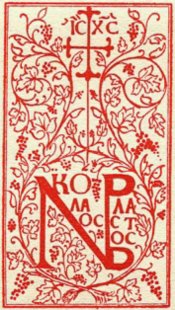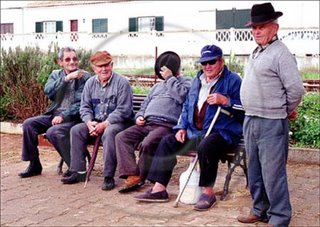
The following excerpt is taken from scroll fragment 16a. It has been enumerated for quick reference.
14 And there was a [great] famine in all the land, and no crops could be found to grow, neither in the fields nor in the [terraces] above.
15 And the people cried out to their idols for relief, but there was no relief, for their idols were not [powerful enough] to assist them.
16 And it came to pass at that time that King Ralovent, the high king, turned his face against the idols and cried with a loud voice, saying:
17 "No more will this people bow down before you, O idols!
18 No more will this people bend their backs for the sake of your temple offerings!
19 For you have deserted your people and left them to the land, as an [orphan] is left to the dust.
20 Therefore, I will make my name great in all the land when I bring this famine to an end and dispel the [blight] from our borders!
21 Yea! I will raise up crops and grow them fully in the land I make fertile, and on that day the people will fall down before me and worship.
22 No more will the people suffer on your account, for they will be made to suffer on mine."
23 And as King Ralovent, the high king, began to secure the fields and [terraces] above, he did irrigate them with water from [channels from] under the earth.
24 And as they began to grow, so did the people's hope grow.
25 But even as the moon passes between the earth and [its] sun, casting a shadow, so also was the peace of King Ralovent, the high king.
26 For the Carpathians, seeing that the land was full and overflowing, brought war against Crete,
27 And they came with swords and spears and giants to ravage the land, and [rock-hurling devices] to demolish the towns, killing every man, woman, and child, and slaughtering the livestock for [dinner].
28 And they feasted on the spoils of their conquest.
29 But King Ralovent gathered his armies and went to meet them in the plain of Gnossus, crossing the southern mountains to engage the Carpathians from the rear by surprise.
30 Yet the Carpathians overpowered and defeated King Ralovent and his armies, casting them to shame.
31 And King Ralovent fell in battle on the third day, struck from behind by his own archers while [charging] the burial mounds where the Carpathian giants were gathered.
32 And King Ralovent was pierced and died that very day, breathing his last.
Our team of scholars has made every attempt to render the most direct translation of this passage. Several portions were repleat with erroneous spellings and poor grammar, which we have attempted to adjust with utmost care for the integrity of the text. These portions are indicated within the text by parenthesis.







